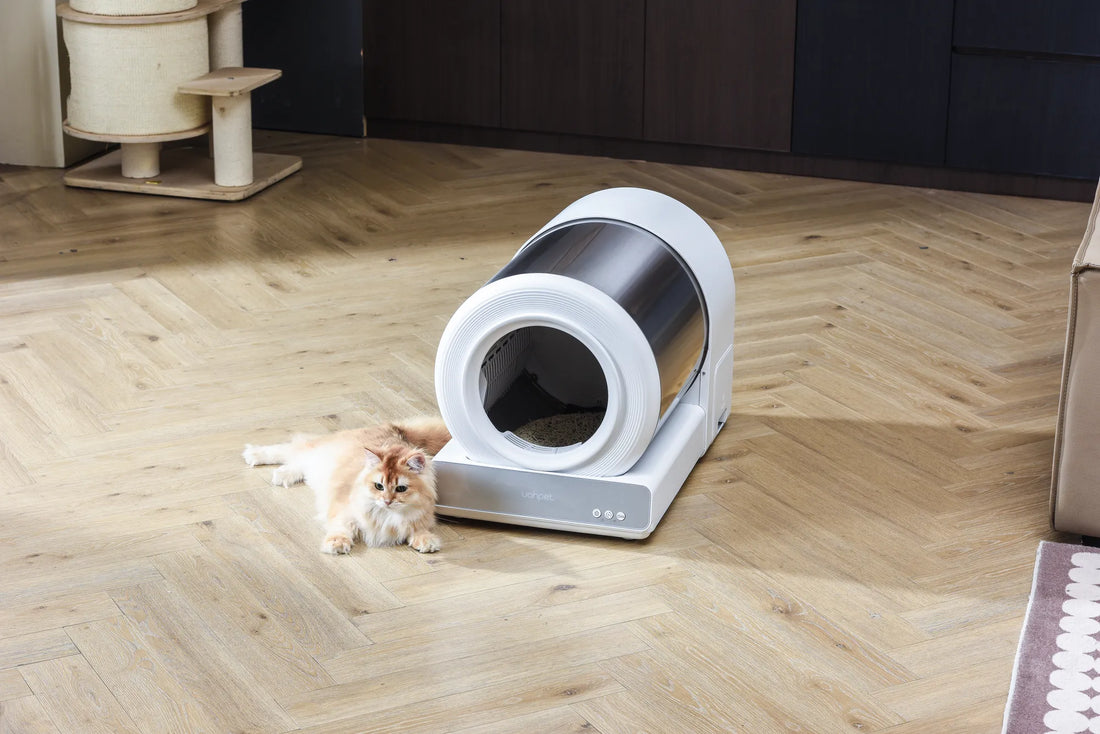If your cat has diarrhea and is peeing outside the litter box, it can be a cause for concern. These behaviors are not only messy but also indicative of underlying health or behavioral issues. Understanding the root causes and implementing the right solutions can help restore your cat's health and maintain a clean home environment.
Common Causes of Diarrhea in Cats
Diarrhea in cats can be triggered by various factors, ranging from dietary changes to serious medical conditions. Here are some common causes:
- Dietary Indiscretion: Cats are curious creatures and may ingest something that doesn't agree with their digestive system, leading to diarrhea.
- Food Allergies or Intolerances: Certain ingredients in your cat's food may cause an adverse reaction, resulting in gastrointestinal upset.
- Infections: Bacterial, viral, or parasitic infections can cause diarrhea. Common culprits include giardia, salmonella, and feline panleukopenia virus.
- Stress: Changes in the household, such as moving or introducing a new pet, can stress your cat and lead to diarrhea.
- Underlying Medical Conditions: Conditions like inflammatory bowel disease, hyperthyroidism, or kidney disease can also cause diarrhea.
Why Is Your Cat Peeing Outside the Litter Box?
When a cat starts peeing outside the litter box, it's often a sign of distress. Here are some potential reasons:
- Medical Issues: Urinary tract infections, bladder stones, or kidney problems can make urination painful, causing your cat to avoid the litter box.
- Litter Box Aversion: If the litter box is dirty, too small, or in an inconvenient location, your cat may choose to pee elsewhere.
- Stress or Anxiety: Changes in the environment, such as a new pet or a move, can cause stress, leading to inappropriate urination.
- Territorial Marking: Unneutered or unspayed cats may mark their territory by urinating outside the litter box.
- Aging: Older cats may have difficulty accessing the litter box due to arthritis or other mobility issues.
How to Address Diarrhea in Cats
Addressing diarrhea in cats involves identifying the underlying cause and providing appropriate treatment. Here are some steps you can take:
- Consult Your Veterinarian: If diarrhea persists for more than a day or is accompanied by other symptoms like vomiting or lethargy, seek veterinary care.
- Dietary Adjustments: Gradually transition your cat to a bland diet or a hypoallergenic food to see if the diarrhea subsides.
- Hydration: Ensure your cat stays hydrated, as diarrhea can lead to dehydration. Provide fresh water and consider offering wet food.
- Probiotics: Probiotics can help restore the balance of good bacteria in your cat's gut, aiding in digestion.
- Stress Reduction: Minimize stressors in your cat's environment and provide a safe, comfortable space for them to relax.
Solutions for Litter Box Avoidance
To address litter box avoidance, it's essential to identify and eliminate the cause. Here are some strategies:
- Medical Evaluation: Rule out medical issues by consulting your veterinarian. Treatment for conditions like UTIs or bladder stones can resolve the problem.
- Litter Box Maintenance: Keep the litter box clean and scoop it daily. Ensure it's the right size and placed in a quiet, accessible location.
- Multiple Litter Boxes: If you have multiple cats, provide one litter box per cat plus an extra one to reduce competition.
- Stress Management: Create a calm environment by maintaining a routine and using pheromone diffusers to reduce anxiety.
- Behavioral Training: Reinforce positive behavior by rewarding your cat for using the litter box. Avoid punishment, as it can increase stress.
When to Seek Veterinary Help
While some cases of diarrhea and litter box avoidance can be managed at home, certain situations require immediate veterinary attention. Seek help if:
- Diarrhea persists for more than 24 hours or is severe.
- Your cat shows signs of dehydration, such as lethargy, dry gums, or reduced urination.
- There is blood in the stool or urine.
- Your cat is in pain or shows signs of distress.
- Litter box avoidance is accompanied by other symptoms like excessive thirst, weight loss, or changes in appetite.
Your veterinarian can perform diagnostic tests to identify the underlying cause and recommend appropriate treatment.
Preventive Measures
Preventing diarrhea and litter box issues involves maintaining a healthy environment and routine for your cat. Here are some tips:
- Balanced Diet: Feed your cat a high-quality, balanced diet that meets their nutritional needs.
- Regular Vet Check-ups: Schedule annual veterinary visits to monitor your cat's health and catch potential issues early.
- Clean Environment: Keep your cat's living space clean, including the litter box, food, and water dishes.
- Stress Reduction: Minimize changes in your cat's environment and provide enrichment activities to keep them mentally stimulated.
- Hydration: Ensure your cat has access to fresh water at all times to support overall health.
By taking these preventive measures, you can reduce the likelihood of diarrhea and litter box problems in your cat.
If your cat has diarrhea and is peeing outside the litter box, it's essential to act promptly to address these issues. Understanding the causes and implementing effective solutions can help restore your cat's health and maintain a harmonious household. Remember, your veterinarian is your best ally in ensuring your cat's well-being.














